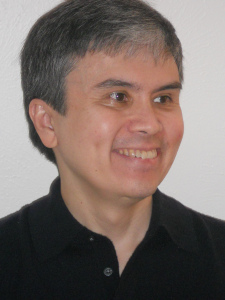
Simon Fill’s “Night Visits” won the Heideman Award from Actors Theatre of Louisville, where the play premiered in the Wintermezzo Festival. “Night Visits” received its New York premiere at HERE Arts Center, produced by Circle East Theatre Company. Simon was originally a member of the Playwrights Project, a small group of young playwrights nurtured by Circle Repertory Theatre. His plays have been produced in New York City, regionally, and internationally.
“The Gift” was recently published by Vintage Books in the anthology Plays For Two. He was an A.S.K. American exchange playwright at the Royal Court Theatre, and his full-length play Post Punk Life received a month-long developmental production by Lincoln Center Theatre Directors Lab.
Simon was awarded a playwriting residency and fellowship by Yaddo, where he began his full-length play Burning Cities. Burning Cities won an international competition, the BETC Generations Award, and Boulder Ensemble Theatre Company (BETC) workshopped the play at the Denver Center. Burning Cities was just named a Panndora’s Box winner and will receive a staged reading at the Tenth Anniversary Panndora’s Box Festival of New Works, produced by Panndora Theatre Company at the Garage Theatre in Long Beach, CA.
Simon has an MFA in Theatre from Sarah Lawrence and taught playwriting Off-Broadway for years at the Women’s Project Theater, then at The New American Theatre School and the Boulder International Fringe Festival. He is a new member of the PlayGround Writers Pool, a playwright member of Circle East Theatre Company, and a member of the Dramatists Guild.
What was your inspiration for the play?
I began writing Burning Cities during a residency at Yaddo, and it took a little while for me to realize what inspired the play: grappling in my own life with what defines a meaningful family, how we create one, what risks are inherent in that, and how we cope with the deepest kind of loss and find a way to go on.
An audience member at the Generations Award staged reading of the play by Boulder Ensemble Theatre Company pressed me to go further back in my inspiration. I recalled how I’d been a volunteer bringing around a book cart to patients at Memorial Sloan Kettering Cancer Center. Book cart volunteers were really there to give patients someone to talk with. One day a young woman with cancer came to my cart and was effusive about the joy and excitement of reading Dick Francis mysteries. She couldn’t get enough of them. I still remember her face as she spoke. She was incredibly present. Perhaps that memory influenced the character of Elise.
What do you want the audience to come away with?
The feeling they’ve seen something honest, unsentimental, and authentic. Something that shows the world as it is, or at it could be. Of course, this doesn’t necessarily tie a play to realism.
I want a play to entertain, too, to make people laugh, to move them. And there’s a deeper idea explored in each play. In Burning Cities it’s family: the faith required to create one, how a family isn’t necessarily biological but a deeper bond, the courage needed to nurture this bond through good times and bad. The character of Elise, her honesty and hope, how she changes the lives of the disparate adults who adopt her, her notion of family, what she sees moment to moment—I want the audience to come away with that.
What projects are you working on now?
My agent Susan Schulman and I are beginning to market Burning Cities, which won the BETC Generations Award, was workshopped by Boulder Ensemble Theatre Company (BETC) at the Denver Center, with a staged reading in Chautauqua, and is ready for its world premiere. The workshop with BETC was enormously helpful in developing the play. I cannot praise enough Boulder Ensemble Theatre Company (including the director Stephen Weitz and the dramaturg Heather Beasley) and the actors Luke Sorge, Damon Guerrasio, Heather Nicolson Hughes, and Kate Poling. Their public staged reading of Burning Cities received a tremendous, wonderful audience response—it couldn’t have been better. I sat in the last row studying the reactions of the large audience at every moment of the staged reading, and afterward, I did a half-hour audience talkback along with director Stephen Weitz, who is also the Producing Ensemble Director of BETC. I’ll always be grateful to BETC. It was a privilege to see the play come to life.
Burning Cities was just named a Panndora’s Box winner and will be given a staged reading by Panndora Productions Theatre Company in the Pandora’s Box 10th Annual New Works Festival. The play will open the festival at 8 PM on Friday, November 4, at the Garage Theatre in Long Beach, California. I’m excited about that.
I’m writing the third draft of another full-length, “Visitations,” which not long ago had an illuminating reading with terrific actors. Experienced actors can be so giving, and are essential to the development process of my plays.
And I recently finished a one-act, “One Good Day,” begun after a recent move to the Bay Area. Again, a couple of terrific actors in reading—and my spouse, who is encouraging yet unstintingly honest—helped me see what needed revision.
What playwrights inspire you?
Those who take risks show artistic and emotional courage, playwrights who push the art form forward, like Caryl Churchill, Tony Kushner, Martin Crimp, Sarah Ruhl, Will Eno. Among earlier playwrights, Williams, Beckett, O’Neill, Chekhov. The list could go on and on.
Why did you start writing plays?
I began writing as a poet, while an undergraduate at Cornell University, studying with wonderful poets there, who taught me a great deal. Then I wrote a novel. When I went to Sarah Lawrence for graduate school in fiction writing, I was required to take two electives and chose playwriting and theatre directing. Those electives changed my life. I realized I had the ability to write dialogue, as well as, from being a poet, heightened language. I could hear characters speaking as I wrote, and I came to understand my storytelling has a dramatic sensibility. I switched in my second semester to a Master of Fine Arts in Theatre, with an emphasis in Playwriting and Directing.
What kind of theatre excites you?
Theatre that is honest, unsentimental, and breaks new ground. All great plays do this, and a part of it is the playwright’s original voice. A directing teacher from graduate school, Paul Austin, told me any groundbreaking play will get mixed reviews initially. This is true for plays as different at The Glass Menagerie, Waiting for Godot, and Plenty.
What advice do you have for playwrights starting out?
Write, write, write. Be honest in your writing. Knock out any sentimentality from it. Sentimentality runs both ways: dishonestly happy or dishonestly bleak. Listen to how different people talk. Read and reread Kenneth Thorpe Rowe’s book, Write That Play, and devour Aristotle’s Poetics. Break or bend dramatic principles only for good reason, and after you know how to use them. Kenneth Thorpe Rowe taught Arthur Miller and Milan Stitt, among others.
Is there anything else you would like to add?
In Eugene O’Neill’s time, his plays were national bestsellers. I believe good plays deserve to be widely read as well as produced. Thank you, Proscenium Journal, for continuing this tradition.
